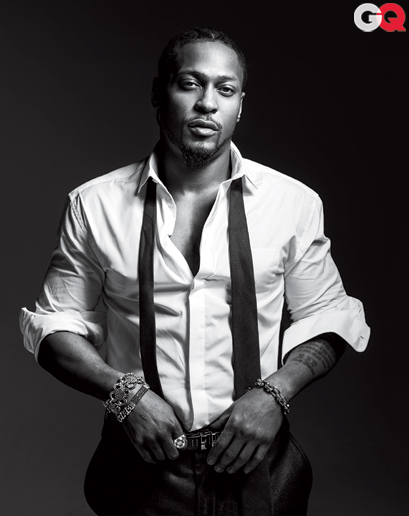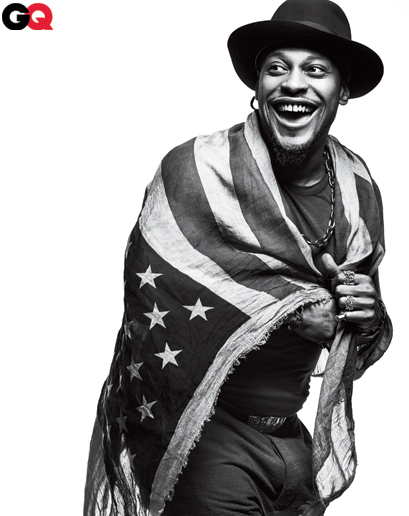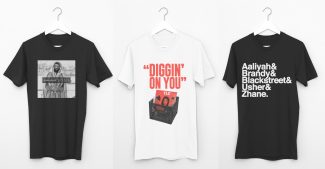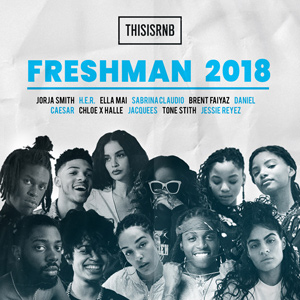D’Angelo is officially back, following his short European tour he gave his first interview in over a decade to GQ Magazine, along with a new photoshoot. The soulful crooner who was once heralded by a critic as an “R&B Jesus,” is currently putting the final pieces together for his oft-delayed but much anticipated comeback album; as well as prepping for more live shows including the upcoming ESSENCE Festival in New Orleans and the Labor Day Weekend ‘Made In America’ Festival in Philadelphia.
The 38-year old opened up like never before in the exclusive interview, a 6 page life story which includes D speaking about his departure from music and society, his downfall with drugs and alcohol, near death experiences, current state and thoughts on today’s industry.
Check out a portion from the interview, and behind-the-scenes performance during his photoshoot below…
Shame, guilt, repentance—D’Angelo knows them well. To say that he was raised religious doesn’t begin to capture it. He’s the son and the grandson of Pentecostal preachers. To D’Angelo, good and evil are not abstract concepts but tangible forces he reckons with every day. In his life and in his music, he has always felt the tension between the sacred and the profane, the darkness and the light.
“You know what they say about Lucifer, right, before he was cast out?” D’Angelo asks me now. “Every angel has their specialty, and his was praise. They say that he could play every instrument with one finger and that the music was just awesome. And he was exceptionally beautiful, Lucifer—as an angel, he was.”
But after he descended into hell, Lucifer was fearsome, he tells me. “There’s forces that are going on that I don’t think a lot of motherfuckers that make music today are aware of,” he says. “It’s deep. I’ve felt it. I’ve felt other forces pulling at me.” He stubs out his cigarette and leans toward me, taking my hand. “This is a very powerful medium that we are involved in,” he says gravely. “I learned at an early age that what we were doing in the choir was just as important as the preacher. It was a ministry in itself. We could stir the pot, you know? The stage is our pulpit, and you can use all of that energy and that music and the lights and the colors and the sound. But you know, you’ve got to be careful.”





